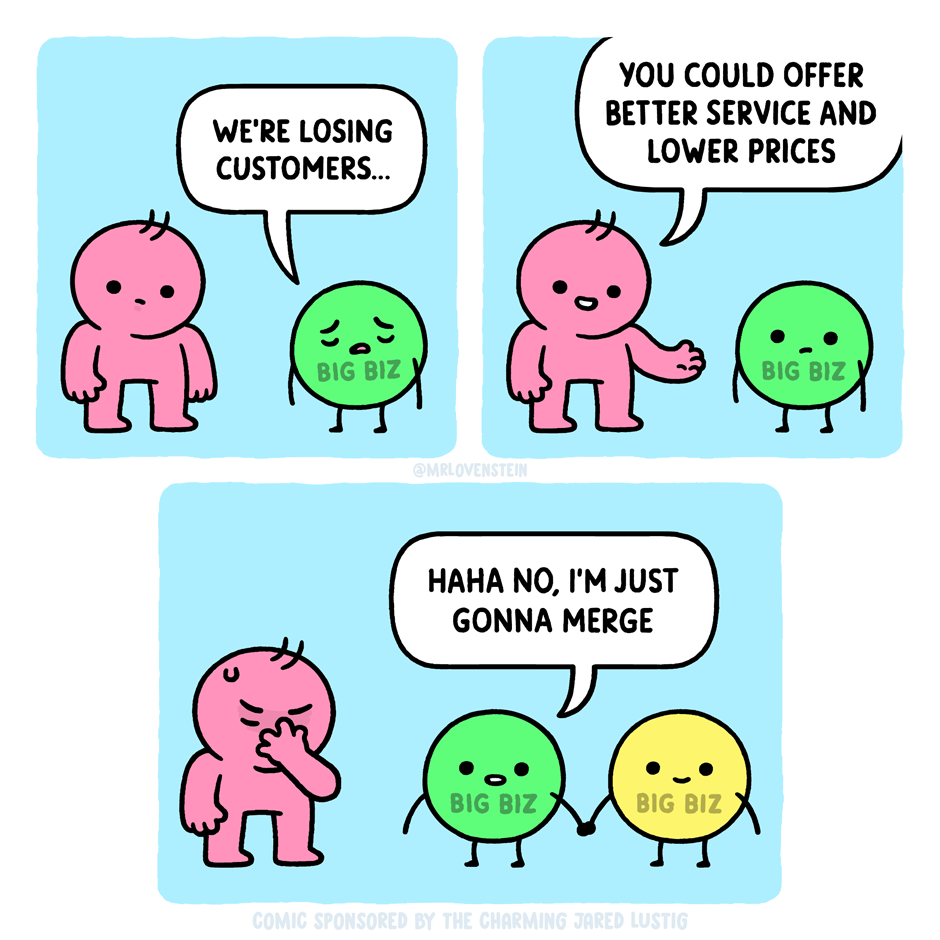this post was submitted on 26 Jan 2024
880 points (99.3% liked)
Comic Strips
12412 readers
2778 users here now
Comic Strips is a community for those who love comic stories.
The rules are simple:
- The post can be a single image, an image gallery, or a link to a specific comic hosted on another site (the author's website, for instance).
- The comic must be a complete story.
- If it is an external link, it must be to a specific story, not to the root of the site.
- You may post comics from others or your own.
- If you are posting a comic of your own, a maximum of one per week is allowed (I know, your comics are great, but this rule helps avoid spam).
- The comic can be in any language, but if it's not in English, OP must include an English translation in the post's 'body' field (note: you don't need to select a specific language when posting a comic).
- Politeness.
- Adult content is not allowed. This community aims to be fun for people of all ages.
Web of links
- !linuxmemes@lemmy.world: "I use Arch btw"
- !memes@lemmy.world: memes (you don't say!)
founded 1 year ago
MODERATORS
you are viewing a single comment's thread
view the rest of the comments
view the rest of the comments

Our anti trust is currently not far from asking nicely to not abuse your market position. Has there been a change to give it some teeth?
With that said, it could be even worse!
Khan is must more active in examining proposed mergers of large corporations than previous FTC administrators.
I'm gonna fanboy out a bit here...
She came to prominence when she was still in law school and wrote Amazon's Antitrust Paradox.
Ever since the disastrous law and economics movement took over in the 1970s, anti-trust has been about low consumer prices. Basically, and simplifying quite a bit, it didn't matter how big a corporation got, whether they were part of an oligarchical or monopolistic market structure, as long as they could prove their prices weren't extorting consumers, it was all good.
In Amazon's Antitrust Paradox, she basically criticizes that economic perspective as permitting anti-competitive practices, consolidation of market power, and harm to consumers as a consequence.
Amazon, after all, rose to prominence by legitimately offering consumers lower prices on books, basically by reducing distribution costs and not owning any physical stores. It passed the savings onto consumers. So, there's nothing inherently wrong with offering lower prices on stuff.
The problem, according to Khan, is that Amazon has continued to offer lower prices to consumers as it grew larger and larger and into the massive platform it is today...most of the time. Some of those lower prices may have been legitimately obtained...but the FTC is suing Amazon because it has employed its monopoly to price competitors and then shift to charging consumers more.
Under the old anti-trust paradigm, low consumer prices were all that mattered. Under Lina Khan, market structure and consumer prices matter. A monopoly that maintains low prices is as anti-competitive as any monopoly, and negatively impacts our economy.
So, it's not so much that anti trust has been given teeth, but that, under Khan's leadership, the FTC is much more likely to attempt the bite. And she started with Amazon, which is a bold move.
Here's a short podcast about her: Planet Money
The podcast pretty much just sums up what you already said, but this is for people who don't like reading.